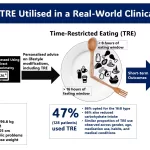Boston, MA — A groundbreaking device developed by Leuko, a company founded by researchers from the Massachusetts Institute of Technology (MIT), promises to revolutionize the way doctors monitor the health of cancer patients undergoing chemotherapy. This innovative device provides a non-invasive method to track white blood cell (WBC) counts, potentially eliminating the need for frequent blood tests.
Chemotherapy, while targeting cancer cells, also takes a toll on patients’ immune systems. One of the critical side effects is neutropenia, a condition characterized by dangerously low levels of white blood cells. Currently, the only way to monitor this condition is through regular blood tests. However, Leuko’s new device offers a remote solution, utilizing light to examine the skin at the top of the fingernail and artificial intelligence to analyze WBC levels.
Carlos Castro-Gonzalez, Leuko’s co-founder and CEO and a former postdoctorate at MIT, highlighted the significance of this advancement. “Some of the physicians that we have talked to are very excited because they think future versions of our product could be used to personalize the dose of chemotherapy given to each patient,” he said. “If a patient is not becoming neutropenic, that could be a sign that you could increase the dose. Then every treatment could be based on how each patient is individually reacting.”
The technology behind this device was initially developed at MIT in 2015. Over the ensuing years, researchers created a prototype and conducted preliminary studies to validate their approach. In a 2019 study involving 44 patients, Leuko’s team demonstrated that the device could accurately detect when WBC levels dropped below a critical threshold, with minimal false positives.
For the past four years, Leuko has collaborated with the US Food and Drug Administration (FDA) to design studies ensuring the device’s accuracy and user-friendliness, even for untrained patients. The company anticipates commencing a pivotal study later this year, which will be crucial for securing FDA approval.
This new device holds the promise of significantly improving the quality of life for cancer patients by reducing the need for invasive procedures and allowing for more personalized and responsive treatment plans. As it moves closer to FDA approval, the medical community eagerly awaits the potential benefits it could bring to cancer care.











